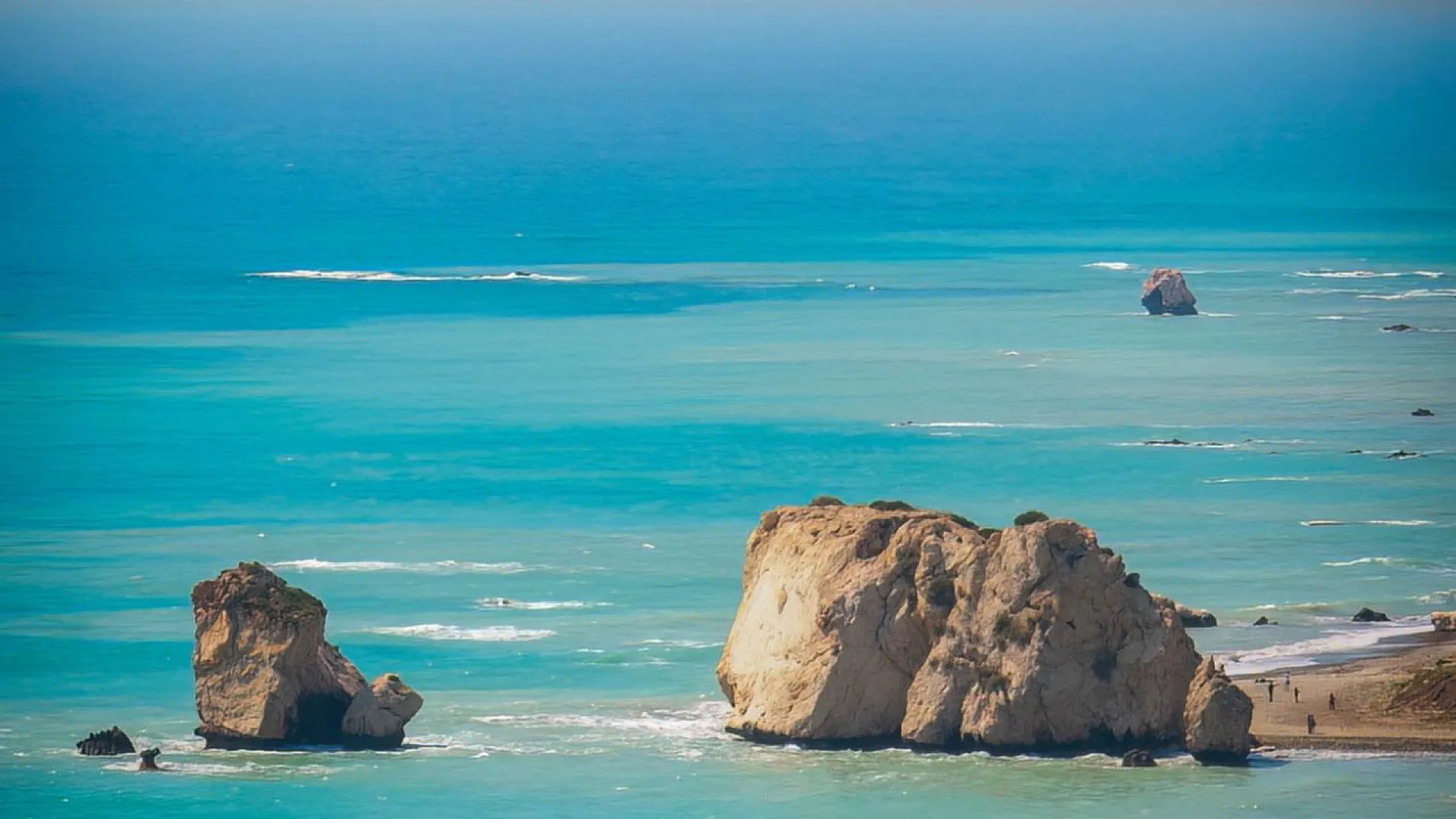




Most people think of Cyprus and picture golden sandy beaches, brilliant sunshine, and hot summers. But winter on the island has its own unique charm. It’s mild and often sunny, but also unpredictable, and it can hold a few surprises for newcomers. The idea of packing a suitcase for a long-term stay is already a challenge; factoring in the specific quirks of a Cypriot winter makes it even more complex. Contrary to the classic holiday photos, the winter months (December to February) can be cool, rainy, and windy, especially at night and in the early mornings.
This checklist is your practical guide to help you perfectly prepare for your living in Cyprus during the cooler months. We'll not only cover the clothes you need but also the essential documents, tech, and health precautions for a smooth transition. Our goal is to give you a solid foundation so you can fully enjoy the lesser-known but equally beautiful winter season in Cyprus, without being caught off guard by the weather or infrastructure.
The Cypriot weather in winter is often a fascinating mix of mild, sunny days and cool, rainy periods. This is a big difference from the harsh winters in Central Europe. The right clothing is therefore key to feeling comfortable at any time of day. It's less about heavy winter coats and boots and more about a clever layering system that responds to rapidly changing temperatures.
Daytime high temperatures in December and January can often reach 15°C (59°F) or more, while nights can drop below 10°C (50°F). For this reason, the principle of layering is essential. Pack a good selection of long-sleeved T-shirts made from cotton or merino wool, light sweaters, and sweatshirts. A light knit sweater or a fleece is perfect for cooler mornings and evenings. Pair these with comfortable jeans or trousers. Remember that you can often take off a layer during the warm midday hours. For outdoor activities like hiking in the Troodos Mountains, breathable and comfortable athletic wear along with hiking shoes with good grip are a great choice for the sometimes muddy nature trails.
It’s also important to bring the right footwear. While sandals and open shoes are suitable for sunny days, you should definitely pack a pair of closed shoes or boots that are waterproof. Rain can be surprisingly heavy and can even lead to local flooding. Getting your feet wet is the fastest way to have a bad day. You should also think about a light wind- and waterproof jacket that doesn't take up much space in your luggage.
A common misconception among newcomers concerns heating in apartments. Unlike in Northern or Central European countries, most older Cypriot buildings are not well-insulated and often lack central heating. The primary heating sources here are often mobile electric heaters or the air conditioning unit in heating mode, which is not only less efficient but can also lead to surprisingly high electricity bills. Indoor temperatures can therefore be unexpectedly cool, especially after sunset and in the early morning hours.
Therefore, it’s crucial to pack warm clothing for indoors as well. Think about thick wool socks, cozy slippers, comfortable sweatpants, and warm sweaters. Preparing yourself with these simple items is an essential aspect of feeling comfortable in your new accommodation. For your living in Cyprus during winter, you should be prepared for warm clothing to be just as important indoors as it is outdoors. This is a practical, real-life tip that is often overlooked.
A long-term stay abroad requires more preparation than a short vacation. The right documents, a clear financial plan, and well-thought-out health precautions are essential for a smooth living in Cyprus and to avoid unforeseen problems.
Before you begin your journey, ensure that all your important documents are valid and easily accessible. This includes your passport or ID card, your residence permit (Yellow Slip or visa), and your international driver's license. It’s wise to save digital copies of these documents to a secure cloud storage or an external hard drive in case the originals are lost. An additional physical copy kept separate from the originals can also be very helpful.
Regarding finances, a local bank account significantly simplifies daily life, especially for paying rent, utilities, and other recurring bills. Before you arrive, research the process of opening a bank account for foreigners at Cypriot banks and the required documents (often a proof of residence and a valid ID are needed). Make sure your international credit cards work and you have access to your funds before your local account is ready. Most businesses accept credit cards, but a small amount of cash in Euros (in the South) or Turkish Lira (in the North) is always useful for small shops or markets.
A healthy lifestyle is a central aspect of life in Cyprus, but your healthcare should not be left to chance. Clarify your health insurance situation in advance. The Republic of Cyprus has a public healthcare system (GESY) that is accessible to EU citizens once they have completed the necessary registrations. Private health insurance is also a common option and often offers faster appointments and broader treatment options. Check with your current insurance provider to see if they cover a long-term stay and which medical treatments in Cyprus are reimbursed.
Furthermore, you should bring an adequate supply of any prescription medications you take regularly. While pharmacies in Cyprus are generally well-stocked, certain medications might be known by a different name or not be immediately available. It’s also always a good idea to bring a small travel first-aid kit for common ailments like colds, headaches, or stomach problems. It's wise to create a list of emergency numbers and addresses of clinics near you in case of an emergency.
As a digital nomad or remote worker, the right tech equipment is crucial for a seamless living in Cyprus. But for all other travelers, it's also important to stay connected and have entertainment for rainy days.
Cyprus uses the UK-style power plug (Type G). Therefore, be sure to bring one or more adapters to use your devices. While these are readily available in local shops, it's more convenient to have them with you. Regarding the internet, most cities are well-equipped with fast internet (fiber optic). However, it's advisable to check the exact internet connection before renting a property, as speeds can often be slower in more rural areas.
A mobile router or a local SIM card with a generous data plan can be a flexible and reliable alternative that allows you to work online even outside your accommodation. Mobile coverage on the island is generally very good. Getting a local SIM card from providers like Epic, Cyta, or Primetel is often cheaper than using roaming and gives you a Cypriot number, which is practical for local contacts and eases integration.
Pack all the necessary electronic devices you need for work or personal use. Laptops, e-readers, tablets, or portable gaming consoles can be a lifesaver on a rainy day. Also, consider if you can use your preferred streaming services with a VPN, as the content library can vary by country. A good pair of headphones for video calls or just for listening to music in a cafe can also be useful. By clarifying these technical aspects before you arrive, you can settle into your new life with peace of mind.
In addition to the right clothing, there are other practical aspects you should consider for a winter stay in Cyprus. The Cypriot winter climate is unique, and those who prepare for its specific conditions will enjoy their time to the fullest.
The biggest misconception about winter in Cyprus is that it doesn't get cold. Temperatures may remain mild, but the often-high humidity, especially near the coast, can make the perceived temperature feel significantly lower and make the interior of poorly insulated homes or apartments unpleasantly cool. This humidity can lead to a musty smell and even mold. A crucial helper during this season is a dehumidifier. Many locals use these devices to reduce moisture in indoor spaces, prevent mold growth, and make the indoor air more comfortable. This is one of the most important investments for your living in Cyprus during the winter.
Also, think about heating solutions. Electric heaters or air conditioning units in heating mode are often available but can be expensive as they consume a lot of electricity. Consider whether the property has a gas heater or a fireplace. Electric blankets or hot water bottles can also provide extra comfort. To combat humidity, ventilate regularly, even on cool days, to ensure air circulation.
Cyprus remains active and open in the winter. The island is particularly green and blooming during this season, and temperatures are perfect for outdoor activities without the oppressive summer heat. Use the sunny days for hikes in the Troodos Mountains or walks on deserted beaches to experience the unique phenomenon of nature coming back to life. It's the ideal time to explore the many archaeological sites, like the ancient ruins of Kourion or the Tombs of the Kings in Paphos, in peace.
On rainy days, museum visits, exhibitions, and art galleries are great options. Cypriot culture thrives in the cities with many traditional kafenias (cafes) and cozy tavernas where you can warm up. Shopping at local stores or discovering the culinary variety in a covered market are also perfect options for passing the time. You can also participate in local workshops or cooking classes that highlight winter vegetables, or simply enjoy the island's beauty in one of the many cozy cafes.
A long-term stay in Cyprus during the off-season offers unbeatable advantages that go beyond the weather. It is the best way to experience the island in its most authentic form and build a deeper connection to its unique rhythm.
In winter, the number of tourists drops drastically. The beaches, restaurants, and attractions that are crowded in summer become quiet and offer a relaxed atmosphere. This is the perfect time to integrate into the local community and get to know the true, unfiltered life of Cypriots. It becomes easier to talk to locals, experience their hospitality, and understand the culture away from the tourist hotspots. You can spend time in local cafes, the traditional kafenias, and observe daily life, or participate in seasonal activities like the olive or citrus harvest. This is an invaluable advantage that makes living in Cyprus during this season a very special experience.
The island awakens at a different pace in winter. Nature is particularly green, wildflowers are blooming, and the air is clearer. This provides an ideal backdrop for reflection and rest, far away from the summer's hustle and bustle. It's an opportunity to get to know the island's soul—its history, its tranquility, and the warmth of its people.
A long-term stay in winter can also bring significant financial benefits. Rental prices are often significantly lower in the off-season, as landlords are more eager to rent their properties long-term rather than for short-term tourism. This significantly eases your budget and offers the opportunity to rent a larger or better-equipped property for a more affordable price. Airfares and costs for local services are also generally more affordable. This allows you to invest your money in other things, such as exploring the island or participating in local classes and activities.
In addition to the financial benefits, daily life in winter is often more practical. The roads are less crowded, finding parking is easier, and queues at government offices or supermarkets are shorter. This leads to a more relaxed and efficient daily routine that enhances the feeling of a stress-free living in Cyprus.
A winter in Cyprus is a unique experience. There may not be snow (except in the Troodos Mountains), but the subtle challenges of humidity and unpredictable rainy days require thoughtful preparation. With the right clothing, necessary documents, and an understanding of the local conditions, you are well-equipped.
A long-term stay during the winter months is a valuable opportunity to enjoy the island's beauty and authenticity in a quieter, more intimate atmosphere. It offers the perfect balance of a mild climate, cultural depth, and practical advantages. Living in Cyprus in winter is not only possible but can be one of the most rewarding experiences you will have here, and an excellent foundation for a long-term, fulfilling life on the island.
We use necessary cookies including analytics to ensure our website works properly and to understand how to improve your experience. By continuing to browse, you accept our use of necessary cookies. Click "Accept All" for personalized content and offers.